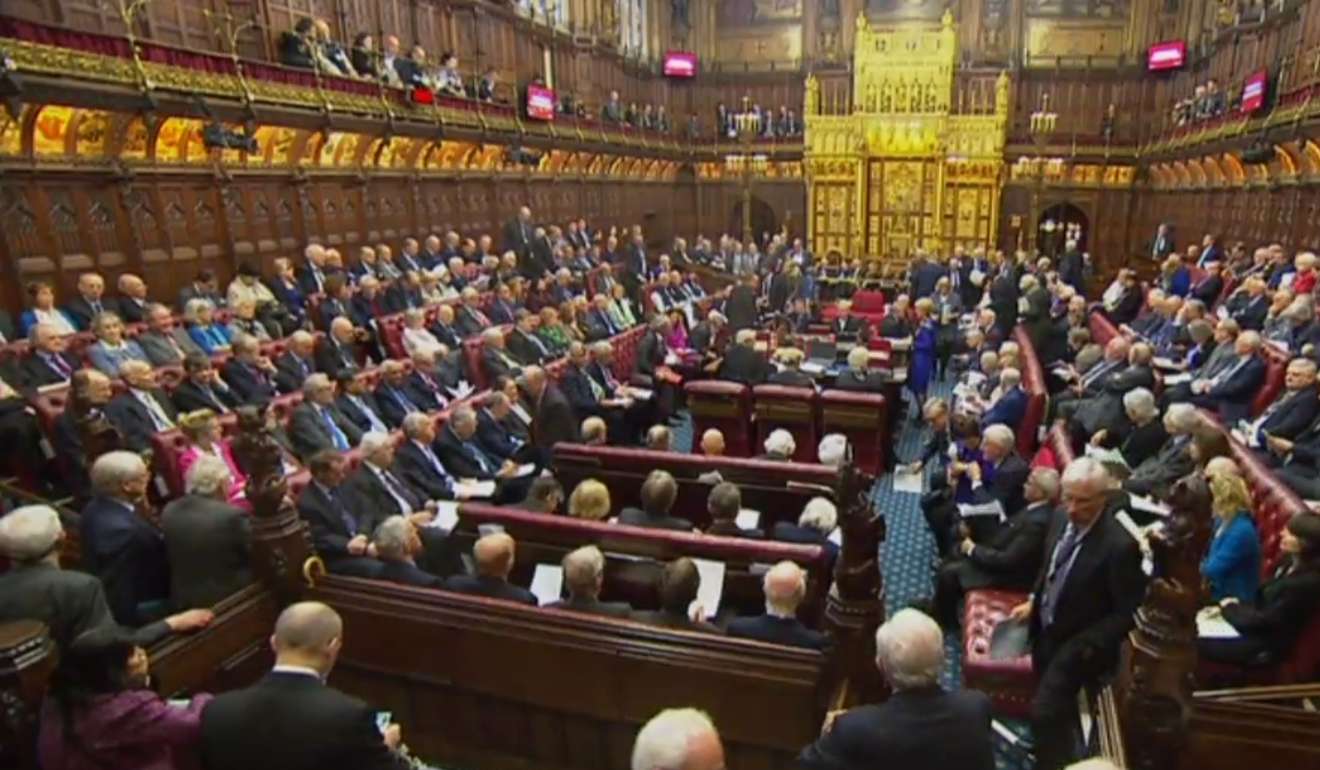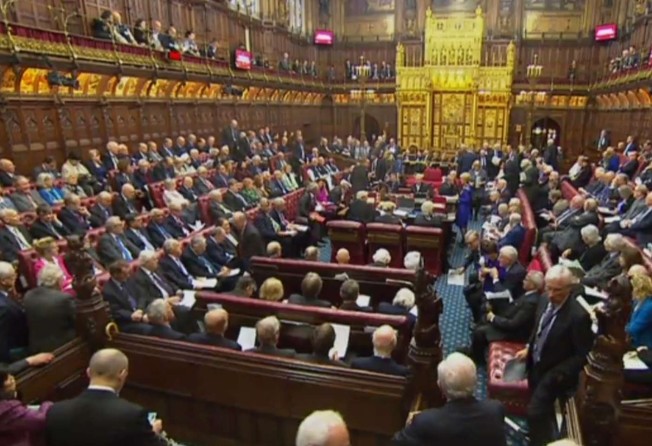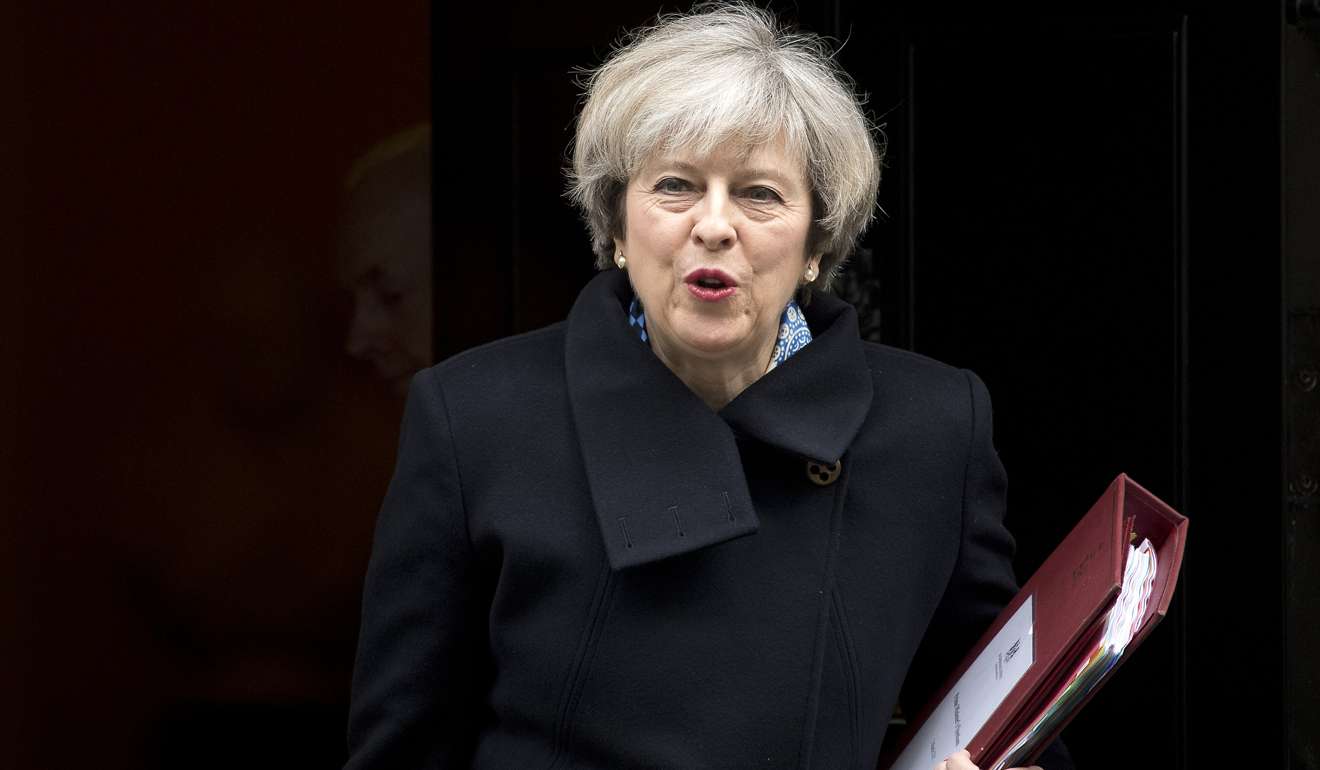
House of Lords delivers Brexit setback to UK government by supporting EU citizens’ rights

Britain’s unelected House of Lords on Wednesday handed the government a stinging – though likely temporary – defeat on its plans to leave the European Union, resolving that EU citizens should be promised the right to stay in the UK after it quits the bloc.
By a vote of 358 to 256, Parliament’s upper chamber inserted a clause protecting EU nationals’ status into a bill authorising the government to begin EU exit talks.
The Labour Party’s Brexit spokeswoman in the Lords, Dianne Hayter, said Europeans living in Britain “need to know now, not in two years’ time or even 12 months’ time,” what their rights are.

Pro-EU politicians hailed the vote as a symbol of commitment to Europeans living in Britain. But it is unlikely to turn out to be binding on the government. The change must go to a vote in the elected House of Commons, where there is a strong chance it will be rejected, since Prime Minister Theresa May’s Conservative Party has a majority in the lower chamber.
The government said it was “disappointed” by the Lords’ vote, and is expected to try to overturn the amendment in the Commons later this month.
By leaving the EU, Britain will be withdrawing from the bloc’s policy of free movement, which allows citizens of the bloc’s 28 member states to live and work in any of the others. That leaves 3 million EU nationals in the UK, as well as 1 million Britons in other member countries, uncertain whether they will be able to stay in their jobs and homes once Britain reasserts control over EU immigration.

The Lords’ amendment commits the government to guaranteeing within three months that EU citizens living legally in Britain when the bill is passed “continue to be treated in the same way with regards to their EU-derived rights.”
A stream of peers – most from opposition parties but a few from the governing Conservatives – stood to agree with her. Broadcaster Melvyn Bragg, a Labour member of the Lords, said EU citizens in Britain had been “reduced to pawns in a government tragedy.”
He said Britain should “tell those who are here now that we want them to stay here and welcome them.”
But Conservative peer Nigel Lawson said the amendment was merely “virtue-signalling” and would have no concrete impact. And his Conservative colleague Michael Howard said it could backfire by delaying a deal on residence rights between Britain and the EU.
He said the best course was to launch formal negotiations “and then to negotiate to give these people the rights they deserve to stay in this country.”
The prime minister wants to trigger Article 50 of the EU’s key treaty, starting two years of exit negotiations, by March 31. But she can’t do that until Parliament passes legislation sanctioning the move.
The House of Commons approved the bill last month and can overturn any changes made by the Lords when the legislation comes back.
Back-and-forth between the two chambers – a process known as parliamentary ping pong – will delay passage of the legislation and potentially threaten May’s timetable for starting EU exit talks.